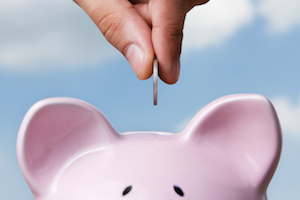 Amid high inflation and mixed economic signals, most U.S. adults admit they are worried about the possibility of a recession and are taking steps to prepare, including saving more for retirement, a new survey finds.
Amid high inflation and mixed economic signals, most U.S. adults admit they are worried about the possibility of a recession and are taking steps to prepare, including saving more for retirement, a new survey finds.
In fact, nearly 7 in 10 (69%) U.S. adults admit that they are worried about the possibility of a recession before the end of next year, with 29% saying they’re “very worried” and another 40% saying they’re “somewhat worried,” according to the poll by Bankrate.
At the same time, more than 2 in 5 (41%) indicated that they feel unprepared to weather a recession if one were to strike before the end of next year, including 24% who say they are “not too prepared” and 17% who are “not at all prepared.” The remaining 59% consider themselves prepared for the possibility, although just 17% say they are very prepared (42% somewhat prepared).
But in a more positive sign, 74% of respondents report that they are actively taking steps with their personal finances in anticipation of an economic downturn. This includes:
- spending less on discretionary purchases (47%);
- saving more for emergencies (35%);
- paying down credit card debt (30%);
- looking for additional or more stable income (24%); and
- saving more for retirement (19%).
A small portion of respondents (4%) indicated that they are doing something else.
Bankrate observes, however, that that still leaves 26% who are doing nothing in anticipation to better prepare for an economic recession.
Remarkably, 31% who consider themselves unprepared for a recession are currently doing nothing to improve their situations, including the 42% of them who are not at all prepared. In comparison, just 22% who consider themselves prepared are taking no action.
“While some Americans indicate they believe the economy is already in a recession, it is perhaps more important that so many are already taking actions based on their fears or beliefs that one is inevitable over the next year or so,” notes Mark Hamrick, senior economic analyst at Bankrate. “Fortunately, we’re seeing some constructive developments including saving more for retirement and for emergencies and paying down credit card debt.”
According to Bankrate’s findings, some groups are more likely to feel unprepared, including:
- women (48% versus 34% of men);
- minorities (45% of nonwhite adults versus 38% of white adults);
- less educated (46% of those with less than a four-year college degree versus 29% with at least a four-year degree);
- Gen Z (51%, versus 44% of Millennials and Gen X, and 35% of Baby Boomers); and
- lower earners (53% for those making less than $50,000 annually versus only 24% for those making $100,000 or more).
“Because not all Americans have the same level of financial resources or security, the impacts can differ wildly depending on that condition before the downturn,” Hamrick further observes. “For those living on the financial edge, the prospect or reality of job loss can be devastating.”
2023 Outlook
Looking ahead to a year from now, 7 in 10 U.S. adults believe that inflation will not have improved, including 51% who think it will be worse and 20% who think it will be about the same. Just 16% believe inflation will let up over the next year, while 14% said they don’t know.
A much smaller group of respondents say they are not worried about the possibility of a recession by the end of next year, at nearly 1 in 3 (31%). That includes 21% who say they’re not too worried, along with another 9% who say they’re not at all worried, Bankrate notes.
The survey was conducted by YouGov Plc on behalf of Bankrate among 2,390 adults between July 27-29, 2022.
- Log in to post comments
